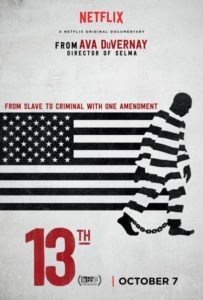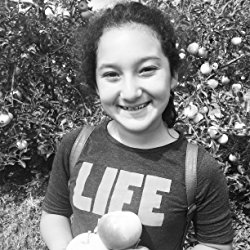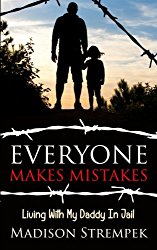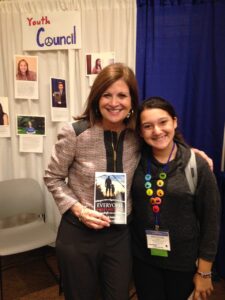 REALITY CHECK: During the past decades, the U.S. prison population skyrocketed, and so did the number of children experiencing the consequences of having a parent incarcerated. From just 1980 to 2000, the number of kids with a father in prison or jail rose by 500 percent.
REALITY CHECK: During the past decades, the U.S. prison population skyrocketed, and so did the number of children experiencing the consequences of having a parent incarcerated. From just 1980 to 2000, the number of kids with a father in prison or jail rose by 500 percent.
Today more than five million children in the United States of America have a parent who is incarcerated.
The number of women in prison has also increased dramatically which poses a marked risk on children: incarcerated women are much more likely than their male counterparts to be primary caregivers of minor children at the time of their imprisonment. Derek Kreager, professor of sociology and criminology at Penn State points out: “Previous research indicates that if a mother becomes incarcerated, it increases the child’s risk of entry into the foster care system, which can further disrupt child well-being.”
I strongly suggest you watch Ava DuVernay’s powerful new documentary “13TH” about our broken prison system. We have the highest incarceration rate in the world.
America is home to 5 percent of the world’s population, but 25 percent of the prison population.
I also urge you to read, Everyone Makes Mistakes: Living With My Daddy in Jail by a glorious 11 year-old named, Madison Strempek. I always try to share stories of kids who are Changemakers. This eleven-year-old is helping us step into the shoes of a child who is enduring the pain of having a parent incarcerated. Such an experience poses a devastating toll on kids, families and communities, and our schools are filled with a growing breed of students with a parent in jail or prison. Madison provides us with a needed roadmap so we can help other children navigate the ordeal.
How A Young Girl Helps Kids with Incarcerated Parents
 Madison Strempek is a precocious 11-year-old who lives in Maryland with her mom, grandma, two cousins, an aunt an uncle, two dogs and a cat. She admits that she lives in a crazy home, but she also has “a lot of people to talk to” and that helps. You see, Madison is going through one of the most difficult times imaginable: her dad is in jail. When her father went to prison last February, Madison could not find a book that could help her get through it. So, she decided to write her own to help kids in similar circumstances.
Madison Strempek is a precocious 11-year-old who lives in Maryland with her mom, grandma, two cousins, an aunt an uncle, two dogs and a cat. She admits that she lives in a crazy home, but she also has “a lot of people to talk to” and that helps. You see, Madison is going through one of the most difficult times imaginable: her dad is in jail. When her father went to prison last February, Madison could not find a book that could help her get through it. So, she decided to write her own to help kids in similar circumstances.
I met Madison in Washington DC at the National Character.org conference last week and I was instantly struck by her charm, wisdom and character. And then she handed me her book: Everyone Makes Mistakes: Living with My Daddy in Jail. I realized I had just met a Changemaker.Madison is using her empathy and compassion to help make a difference for others.
“I’m just letting them know, they’re not alone and that they don’t have to keep it inside,” Madison said. “If they keep it inside, it’s just going to stay there. If you don’t get it out in some form or way, it’s just going to hold you back from getting better grades and just anything in general.”
 Madison writes with such honesty and heart that it’s hard to not want to wrap your arms around her. The young girl describes how much she hurts, but also helps both adults and kids understand what it’s like to be a child whose parent is incarcerated.
Madison writes with such honesty and heart that it’s hard to not want to wrap your arms around her. The young girl describes how much she hurts, but also helps both adults and kids understand what it’s like to be a child whose parent is incarcerated.
Madison also shares the strategies she is using to keep herself strong. I was struck at just how closely Madison’s coping techniques match research on resilience. Educators, counselors, parents and teachers should heed her wisdom and pass not only her book, but also ideas to children who may also be enduring tough times.
Here are a few of her wonderful tips for kids:
“Keep a journal.”
Kids have lots of questions and sometimes it’s hard to get answers. And oh the range of questions Madison had when her mother told her the news about her dad: Why did this happen? How could this happen? Was it something I did? Was it my fault? Does it mean he doesn’t love me anymore? Is it okay to be mad? Is it okay to cry? What will people think of me? Some questions may never be answered, but Madison suggests that kids write their concerns in a journal to help them think things through.
“Develop a comeback.”
Madison advises kids to develop a plan of how to respond to those tough “Where’s your dad?” type questions. She suggests developing a comeback line for “just in case nerve-wracking moments” to boost your self-esteem. (Madison’s comeback was that her dad was on a business trip, and would be back soon). Her advice for dealing with bullies or insensitive peers is textbook perfect: “You have to thrown the next set of words at the bully ten times more powerfully” to “show that their words don’t hurt your feelings.” Madison’s favorite line for a bully: “Thank you for sharing,” and then she moves on.
“Write letters.”
Madison’s mom lets her send letters to her father, and she’s glad she can. But she also knows that some parents might not let their kids communicate with an incarcerated parent. If so, she advises kids to “write the letters, save them in a special place, and when the parent is out of jail, you can give them your special letters from the heart.”
“Find a hobby.”
Madison plays violin and that helped her get through difficult times. She admits that those first days were a “blur” but her mom made her continue her music lessons and go to school to help her know that life “goes on.” She admits that “sticking to a routine” does help. She also realizes that all kids don’t play instruments, so she suggests they “sing or draw or write” during quiet alone times. Madison also trains in Tang Soo Do that helps keep her “never give up” spirit.
“Find someone to talk to.”
Perhaps Madison’s best advice is to “find people you can talk through during this difficult time.” She talks to her teachers, friends, and family and cites a few caring teachers as her “safety nets.” Their support and empathy is what helps her get through the experience with grace and dignity.
“If you don’t have someone, maybe you can talk to you pet,” she says. “Pets are great listeners and don’t talk back.” Madison tells kids to brainstorm names of people you can talk to. “Trust me, you will feel a lot better if you can get it out,” she says.
 This wise child is making a difference. She wrote a letter to President Obama about her father being in jail and sent him a copy of her book. The President was so impressed that he invited her to the White House for a discussion on women and the criminal justice system.
This wise child is making a difference. She wrote a letter to President Obama about her father being in jail and sent him a copy of her book. The President was so impressed that he invited her to the White House for a discussion on women and the criminal justice system.
Madison’s book will help many children with incarcerated parents. But Everyone Makes Mistakes: Living with My Daddy in Jail is also a gift to adults who care desperately about children with a parent in prison or jail and are unsure of how to support them.
Perhaps Madison’s most important message is to remind us of the pain and longing a child feels for her father. Her closing words say it all:
“I will continue to love my daddy and pursue my dreams. His mistakes won’t stop me from being whom I’m meant to be. I promise not to judge him by his mistakes, but by the size of his heart. He has a big heart. Love you, Daddy!”
Thank you, Madison for helping so many children! I loved meeting you. You’re a hero to a lot of kids, and to me. You are a Changemaker!

